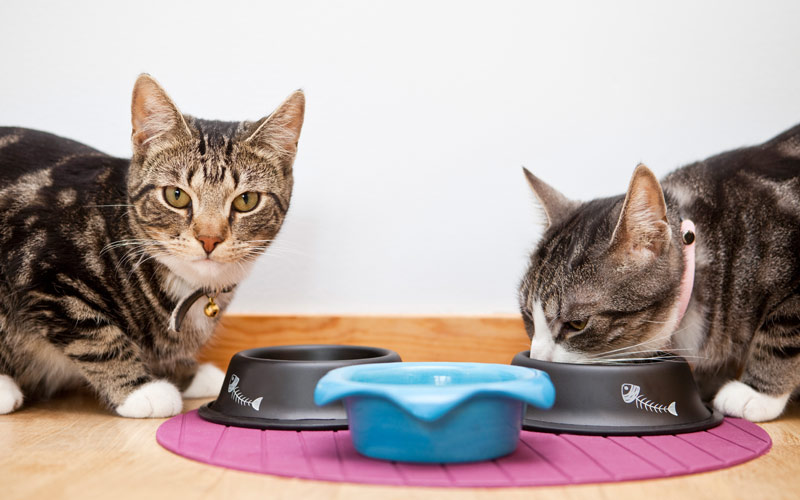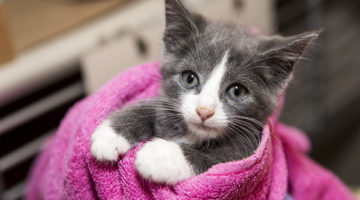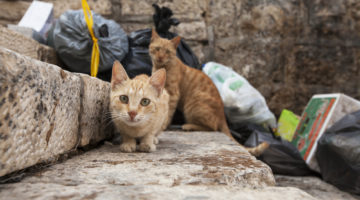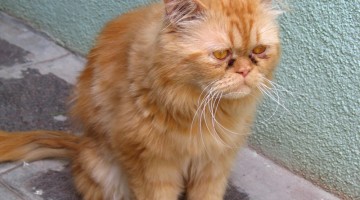Patti’s young daughter knows chocolate is toxic to dogs. But she figured it would be all right to try a bit on the family cat, just to see how he liked it. The result was vomiting, diarrhea and a trip to the vet. Luckily, their kitty didn’t consume enough of the sweet treat to cause any lasting damage, but it was an important wake-up call for both Patti and her daughter.
We hear a lot about foods that are harmful to dogs, but not so much about those that may also bad for cats. In many cases, they’re one and the same. With the holiday season almost upon us, it’s important to know what foods to keep well out of your kitty’s reach.
1Onions – It’s doubtful any cat would eat onions by choice, but if you feed your feline friend table scraps, make sure there are no onions in them. If ingested, onions can cause anemia, which destroys a cat’s red blood cells. Symptoms are loss of appetite, fever and pale gums and lips.
2Chocolate – This popular holiday treat contains theobromine, a type of methylxanthine. Methlyxanthines are highly toxic to cats. Theobromine is found in cocoa beans, the fruit of the cocoa tree from which chocolate is made. Caffeine, another methlyxanthine, is also present in chocolate, but in smaller amounts than theobromine. White chocolate has the lowest levels of theobromine, while cocoa powder has the highest. Dark chocolate has higher levels than milk chocolate. When ingested, chocolate can cause vomiting, diarrhea, and more serious complications such as seizures and abnormal heart rhythms. In some cases, even death can occur.
3Uncooked fish – Most cats love fish, but when uncooked, it contains high levels of thiaminase, the enzyme that breaks down thiamine. Uncooked fish can lead to thiamine deficiency in cats, and may also contain harmful bacteria. Cooked fish does not contain these high levels of thiaminase because heat neutralizes the enzyme. Symptoms of thiamine deficiency are poor appetite, unkempt coat, a hunched body position, aggression, and in some cases even seizures.
4Alcohol – It’s unlikely you would ever give your cat a glass of wine or a shot of rum, but what if someone spills their drink and your kitty laps it up? As with humans, alcohol depresses a cat’s central nervous system. It also affects his brain and liver. The blood chemistry changes and may lead to metabolic acidosis, a condition in which the blood becomes too acidic. This condition can lead to death. The higher the alcoholic content of the drink, the more toxic it is, so caution your guests to watch their glasses!
Resources
ASPCA, aspca.org/pet-care/poison-control/people-foods.aspx PetMD, petmd.com/cat/conditions/cardiovascular The American Animal Hospital Association Encyclopedia of Cat Health and Care, The Philip Lief Group, Inc., 1994 The Veterinarian’s Guide to Your Cat’s Symptoms, Elizabeth Randolf and Lowenstein Associates, Inc., 1999







No Comment